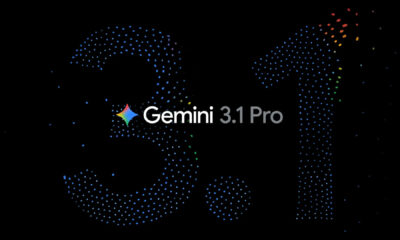MARKETING
How To Optimize for Search in 2023

Don’t expect Google to take a sabbatical this year.
Do expect SEO to be more nuanced than ever in 2023.
My best advice? Track your SEO key performance indicators (KPIs) more often to identify positive or negative trends in your organic results.
But don’t worry about every shift in search rankings because they fluctuate. Pages that drop could quickly rebound a month later, even if the fall happened because of one of Google’s frequent algorithm tweaks.
Instead, focus your SEO strategy on producing as much useful and original content as possible.
I stop short of saying “quality” content because that’s subjective. Google doesn’t give a good explanation in its guidelines championing quality content. Does “quality” refer to exceptional writing, the depth of content on a page, the design of a page, or other factors?
If you provide relevant, original content that answers searchers’ questions and addresses their concerns, you’ll be fine. Though companies may offer similar products and services, you still can create content that offers fresh insights, and perspectives only your brand can share (i.e., case studies, in-depth FAQs, etc.).
Of course, any website can suffer when Google algorithm updates lead its rankings to take a hit. That most likely happens when websites fall short of Google’s guidelines about avoiding hidden text, keyword stuffing, and other spammy practices. The helpful content update in August 2022 focused on the worst offenders.
TIP: This Search Engine Land article explores Google’s crackdown on websites that try to get around its spam policies. And make sure to read the October 2022 updated webmaster guidelines, now called Google Search Essentials.
Expect #SEO to be more nuanced than ever in 2023, says @MikeOnlineCoach via @CMIContent. Click To Tweet
SEO rankings can drop even when you follow the rules
Unfortunately, websites can lose favor with Google even if they don’t intentionally violate any search guidelines. Some of my clients suddenly have seen a massive drop in many rankings even though the SEO elements on affected pages hadn’t changed.
No one knows the precise weight Google places on each ranking factor, from HTML headers to image optimization. In November, the search giant published a roundup document of its ranking systems (what’s in effect and what’s part of search history) that offers some insight.
You also could find several potential solutions to a drop in rankings in my article, How the Right SEO Plan Can Revive Website Rankings and Traffic.
Another potential boost to your rankings comes from Google’s introduction of continuous scrolling in December. Desktop searchers in the United States can now read up to six search result “pages” before a searcher has to click “more results.” Google rolled out this feature for searches on mobile devices in 2021.
It will be interesting to see whether searchers scroll past the traditional first 10 results. You may see 11th through 20th ranking results get extra clicks. Let’s hope so.
As you start the new year, try these eight tips to keep your SEO thriving.
1. Review your SEO KPIs
Rankings and organic search traffic data are relative. Consider adding critical metrics like leads, sales, and PDF downloads as key performance indicators. Even if a few pages aren’t at the very top of search engine results pages (SERPs), any reasonable ranking may prompt better conversion numbers.
If you monitor the competition, look across the industry’s content landscape. You may be tempted to evaluate only known business competitors. But think about your content competitors, too.
Any website ranking better than your site for your targeted keywords can be a digital marketing rival. Study the content of any website that takes a higher spot in the SERPs. What are they doing that you’re not?
Study any #Content that takes a higher #SERP spot than yours. What does it have that yours doesn’t? @MikeOnlineCoach via @CMIContent. Click To Tweet
2. Track your presence in SERPs
Pay attention to your changing SERPs. I call them shapeshifters. They don’t change right before your eyes, but they vary significantly from keyword to keyword.
It’s not uncommon for SERPs to appear differently for the exact keyword phrase from one day to the next. It happens when Google decides what snippets to show – everything from featured snippets to People Also Ask to videos to the Local Pack could appear.
Monitor whether your organic result falls below one or more of the snippet features on a SERP. In other words, your No. 4 ranking may not appear in the same position on the page when those prominent features push it lower.
You can get some insights from RankRanger, which charts trends in its Google SERP Features tool. The chart below shows how often each element appeared in Google SERPs between November 24 and December 22.
Here’s how it breaks down:
- People Also Ask appeared most often (in response to between 40 and 67% of queries)
- Local Pack appeared in response to about 44% of queries (with one dip down to 31%)
- Ads appeared on about 33% of SERPs, with a spike to 44% on December 10.
- FAQ/ How-To Snippets typically appeared in about 22% of SERPS (with a drop to about 12% from December 6 to December 15).
- Featured Snippets appeared on about 13% of SERPs (with one leap to 20% on December 19).
- Knowledge Panel appears on about 10% of SERPs.
- Things To Know only appears on 1 to 2% of SERPs.
3. Understand that backlinks may diminish in importance
I’m still a fan of pursuing backlinks for referral traffic and their potential influence on rankings. But backlinks’ impact on the Google algorithm could change, according to Google Search Advocate John Mueller.
In an interview on a 2022 Search Off the Record podcast, he said, “But my guess is over time, it won’t be such a big factor as sometimes it is today.”
Does that mean you should put the brakes on link-building? No.
Google may dial down its importance, but the referral traffic is still valuable. You never know how your next customer might discover your site.
4. Monitor page load speed
You shouldn’t overlook page load speed as an SEO factor. Google wants searchers to find what they need as quickly as possible.
Improve your website page load times to offer a great user experience. (Actually, don’t neglect any Core Web Vitals.)
But, remember: Websites that are deficient in some areas still rank well. Sometimes they have an edge because of a keyword in the domain name (yes, the words in a domain name still matter) or are packed with educational content visitors crave.
5. Don’t give up on page titles
Page titles (sometimes called SEO titles or title tags) describe a page.
I’m old enough to remember page titles from 1998 littered with keywords like: “Ball Bearings, Spherical Roller Bearings, Deep Groove Ball Bearings,” or “Jewelry | Fine Jewelry | Online Jewelry Shop.”
Fortunately, content marketers can create catchier page titles that pair keywords with a message. For example, Good Housekeeping has nailed title tags like this: “75 Best Gifts for Grandma 2022 – Thoughtful Grandma Gift Ideas.”
I don’t love using the same word twice in a page title, but it works here. As the table below shows, the URL https://www.goodhousekeeping.com/holidays/gift-ideas/g4683/gifts-for-grandma/ ranks in the No. 1 position for “gifts for grandma,” “grandma gifts,” “gifts for grandma christmas,” “christmas gift for grandma,” “best gifts for grandma,” and “grandma gift ideas.”
Maybe the title’s inclusion of the word “thoughtful” isn’t critical for an SEO strategy, but it sells the page. And I doubt Google will penalize page titles that contain a few less valuable words.
Don’t ignore page titles in your SEO strategy. They still matter, says @MikeOnlineCoach via @CMIContent. Click To Tweet
Of course, the addition of non-SEO-focused adjectives like “thoughtful” do make a title longer. Some people argue that page titles shouldn’t exceed 60 characters. But that character count estimate is based on having the full title appear in search results –Google doesn’t cite any character limit for page titles.
I explore title tags in this CMI piece: Write Each SEO Page Title With Google Changes in Mind. And Search Engine Land has a good article about title tag length: What should the title tag length be in 2023?
Of course, titles don’t necessarily matter as much as they once did. Google’s sophisticated machine learning helps websites rank for keywords that aren’t in the title. (In the Good Housekeeping example, the word “Christmas” doesn’t appear in the title, but the content ranks well for keyword phrases that include the holiday.)
Also, in the last two years, Google increasingly hasn’t displayed page titles on the ranking pages. Instead, it usually replaces them with the header (H1 tag) on the page (typically, the page headline).
For now, keep optimizing page titles because Google still considers them in its ranking criteria.
6. Explore new-to-you tools
You probably know (or at least have heard of) popular platforms like Ahrefs, BrightEdge, Conductor, Moz, and Semrush. I recently scoped out a few additional ones to consider:
Suggest Machine
This free service provides long-tail keyword possibilities. While you should still use other tools, you can quickly discover phrases you haven’t considered. It lets you input up to 10 keywords or topics and pick the preferred language and country before returning suggestions and potential search questions.
KeywordsPeopleUse
This free service lets you input a topic, query, brand, or question. You pick where the resulting ideas come from – Google autocomplete, Reddit and Quora, Google’s People Also Ask, keyword discovery, or content explorer.
It returns the ideas in a couple of formats – a questions map and a list of topics under the categories of who, what, where, when, why, which, and can.
AlsoAsked
AlsoAsked taps into Google’s People Also Ask queries and explores relationships along diverse topics. Heavily focused on searcher intent, the results can help marketers structure their content and internal links.
It usually offers a few free searches but operates as a subscription service with plans starting at $15 a month.
In this example, a search for the keyword “stair treads” shows these results (each with a plus mark so users can click to see more options for that result):
- Should stair treads be nailed or screwed?
- Do risers go on before treads?
- Do stair treads have to overhang?
- How do you install stair treads over existing stairs?
- Should I caulk stair treads?
- Are stair treads worth it?
Keyword-o-Matic
This free, bulk keyword tool shows related keywords and questions for the topics you explore. In this example, I input the keywords “metal prints,” “custom metal prints,” and “buy metal prints,” and it shared over 14 results (spelling and punctuation appear the way the tool returned them):
- metal prints online
- metal prints wall art
- metal prints vs canvas
- metal prints Costco
- metal prints near me
- metal prints reviews
- metal prints shutterfly
- metal prints walgreens
- who prints photos on metal
- wholesale metal prints
- who sells prints
- whats metal art
- what are metal prints.”
7. Don’t neglect branded keyword phrases
With a company or product name as the keyword, your brand may not dominate the top results as much as you could.
Content, image file, page title, and other tweaks may improve your rankings. You can make slight improvements on a page without jeopardizing non-branded keyword phrases.
I offer some advice on pursuing this “low-hanging fruit” in this article: How to Use SEO to Boost Branded Keyword Rankings on Google.
8. Use schema to clarify content types
Depending on your content, you can use one of 30 schema types. Semrush has an extensive article: What Is Schema Markup and How To Implement Structured Data. Structured data lets Google understand your website information better and deliver better search results.
Chart your SEO course in 2023
SEO success in 2023 will require you to stay on top of your performance metrics and make frequent adjustments. Whether Google targets a small segment of one industry or plays with SERPs like a puppeteer, you can take helpful steps for better results overall.
New content that addresses searchers’ questions is your best SEO-strategy defense. It’s a tough road. Organic traffic may take some hits, but it’s still a digital marketing powerhouse.
All tools mentioned in this article are identified by the author. If you’d like to suggest a tool, please include it in the comments.
Cover image by Joseph Kalinowski/Content Marketing Institute
























You must be logged in to post a comment Login